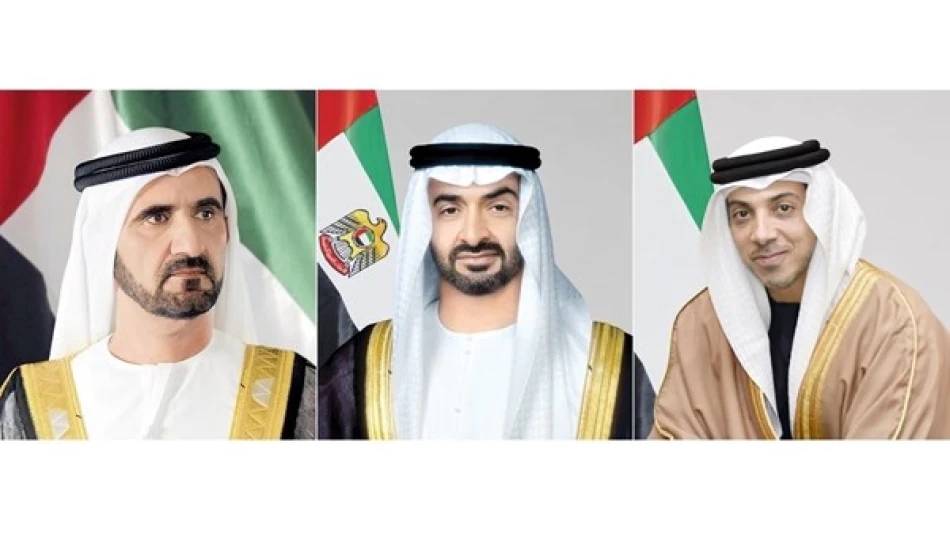
UAE Leaders Congratulate Malian President on Independence Anniversary
UAE Leaders Send Independence Day Greetings to Mali's Military Leadership
The UAE's top leadership has extended formal congratulations to Mali's transitional military government on the West African nation's independence anniversary, signaling continued diplomatic engagement despite Mali's ongoing political instability and international isolation.
Diplomatic Outreach Amid Regional Tensions
President Sheikh Mohamed bin Zayed Al Nahyan sent congratulatory messages to General Assimi Goïta, Mali's transitional president who came to power through a military coup in 2021. Vice President and Prime Minister Sheikh Mohammed bin Rashid Al Maktoum and Deputy Prime Minister Sheikh Mansour bin Zayed Al Nahyan also extended similar greetings to both Goïta and Prime Minister Abdoulaye Maïga.
The formal diplomatic gesture comes as Mali faces increasing isolation from Western partners and regional bodies following two military coups since 2020. The country has been suspended from the African Union and ECOWAS, while French forces have withdrawn after a decade-long presence.
UAE's Strategic Balancing Act
This diplomatic outreach reflects the UAE's broader strategy of maintaining relationships across Africa's complex political landscape. While Western nations have largely cut ties with Mali's military leadership, the UAE appears to be keeping communication channels open.
Regional Context
Mali declared independence from France on September 22, 1960, but has struggled with political stability for decades. The current military leadership promises to return to civilian rule, though timelines remain unclear. The country also faces ongoing security challenges from armed groups in its northern regions.
The UAE's continued engagement with Mali's transitional government contrasts with the approach taken by former colonial power France and other European nations, who have imposed sanctions and reduced diplomatic ties following the military takeovers.
What This Means for Regional Dynamics
The Emirates' diplomatic gesture suggests a pragmatic approach to African relations, prioritizing stability and economic opportunities over ideological alignment with Western democratic principles. This mirrors similar UAE strategies across the Middle East and Africa, where Abu Dhabi often maintains ties with various political actors regardless of their international standing.
For Mali, receiving recognition from a wealthy Gulf state provides some diplomatic legitimacy at a time when traditional partners have stepped back. The UAE's message also signals to other African nations that alternatives to Western partnerships exist, potentially influencing regional diplomatic calculations.
Most Viewed News

 Layla Al Mansoori
Layla Al Mansoori






